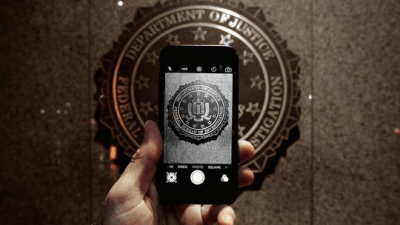
On Monday, the FBI announced that it may have found a way to circumvent Apple and hack into the iPhone of one of the accused terrorists involved in the recent San Bernardino shootings. Owned by shooter Syed Farook, the phone was recovered by the FBI in December. In the weeks following the shooting, the FBI has sought Apple’s help in developing a new operating system that would allow that agency to bypass the current feature in which an excess of incorrect password entries results in erasing of data, thus allowing them to further investigate potential ties between the shooters and larger terrorist networks.
Apple, however, has resisted these requests, expressing concern over the detrimental security implications that could result from essentially creating a “key” to access virtually any iPhone. The company’s stance has produced the current situation of a court face-off between the bureau and Apple. Since their refusal, the FBI announced they received a flood of third party offers to create a way to breach the operating system of iPhones so that the FBI may continue the investigation into the terrorist acts in San Bernardino.
While the government did clarify that they would need more time to conduct research on the new method to ensure data will not be deleted in the process, the Department of Justice claimed to be “cautiously optimistic” of the method – enough that the FBI was willing to request postponement of the court case against Apple until April.
According to a court filing on the high profile case, the global attention that this controversy has attracted resulted in a mass influx of offers outside of the U.S. to help find alternative measures for the FBI. The nature of the solution has yet to be presented formally by the government, but tweets following the FBI’s statements on Monday implied that a “zero day” hack may be in the works; this particular method is known as being extremely valuable given that the target of the attack is unaware of its existence, thus making a surprise approach possible.
The FBI has remained ambiguous about who, exactly, has provided them with this ability. John McAfee, the founder of the anti-virus giant McAfee, has reportedly stated that he played a role in creating the hack and claims he played an “instrumental” role in the FBI’s legal move to postpone court hearings until the hack is further tested, according to CNBC.
Apple continues to claim they have no information regarding how the FBI will hack the terrorist’s iPhone. However, the government agency also maintains that if the court case continues, Apple would pursue research on the vulnerability of iPhones and, as Apple CEO Tim Cook stated in a product launch on Monday, customer privacy will remain a top responsibility for the company as the research continues.
This article (Is Your iPhone Next? FBI May Not Need Apple to Hack Devices) is free and open source. You have permission to republish this article under a Creative Commons license with attribution to the author and TrueActivist.com


